This RPG's dungeon builder is Neverwinter Nights meets Super Mario Maker
Become a Dungeon Master without having to buy three rulebooks.
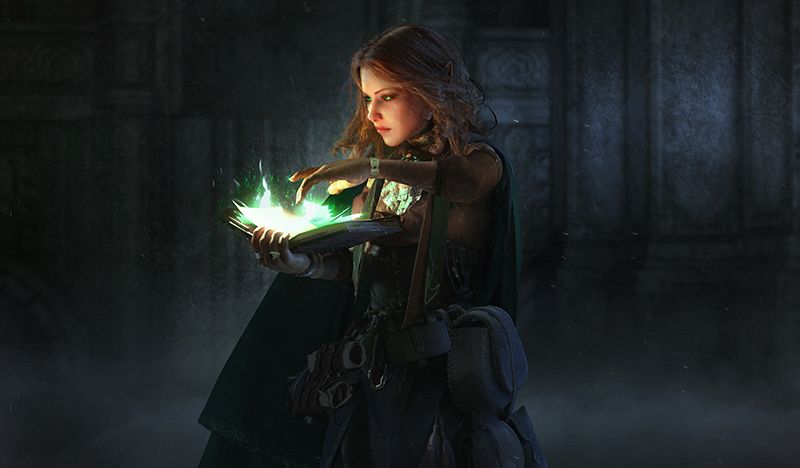
You know when a business advertises itself as being the second-best at something, then says, 'We try harder?' That's the position Solasta: Crown of the Magister is in, as the other turn-based RPG based on D&D's rules currently in Early Access. Developer Tactical Adventures would dearly like its game to emerge from under the shadow of Baldur's Gate 3, which is why the indie alternative to Larian's sequel now comes with Dungeon Maker, an in-game editor for crafting dungeons using an interface familiar to longtime PC RPG fans.
The Dungeon Maker lets players easily create their own D&D-based dungeon crawling adventures with a level of detail not seen since the days of Neverwinter Nights.
"Early Access has given us lots of feedback," says Matthew Girard, Tactical Adventures founder and creative director. "We've implemented a difficulty system to make the game easier or more challenging, cleared up UI elements, and of course we're still working on completing the main campaign and integrating new features.
"We've received two requests from players more than anything else: multiplayer, and the ability for players to create their own content." Girard teases that they aren't ruling out multiplayer completely, but it isn't happening at release in favor of focusing on a singleplayer, party-based RPG. As for the second requested feature, enter the Dungeon Maker.
The Dungeon Maker is an in-game editor that lets players create custom dungeons from scratch by placing rooms, traps, monsters, and loot. It's focused on accessibility and intuitive controls, using a 2D map interface with drag-and-drop rooms that snap to doors and openings. It basically feels like Neverwinter Nights meets Super Mario Maker.
"Not everyone is a game developer—it's a full-time job," says Girard. "We wanted to have a tool that's even simpler than Neverwinter Nights' creator, something more like LittleBigPlanet. Like using Lego blocks and pieces to construct your dungeon."
During a private demo, I watch Emile Zhang, community manager for Tactical Adventures, throw together a quick series of rooms using the Necropolis tileset, which looks like a standard crypt. Rooms are available in several different sizes and shapes, and include pre-furnished blueprints, as well as empty rooms ready to be filled with decorative props, as well as monsters, traps, and treasure.
The biggest gaming news, reviews and hardware deals
Keep up to date with the most important stories and the best deals, as picked by the PC Gamer team.
Each room features a number of openings that can instantly become doorways when another room is placed beside it. With the attractive and intuitive UI (which fans of Amplitude Studios' Endless series will quickly recognize), it's easy to label a door as locked, or secret, or trapped (or all three), and use a sliding bar to determine the skill levels it takes to detect any traps and pick locks.
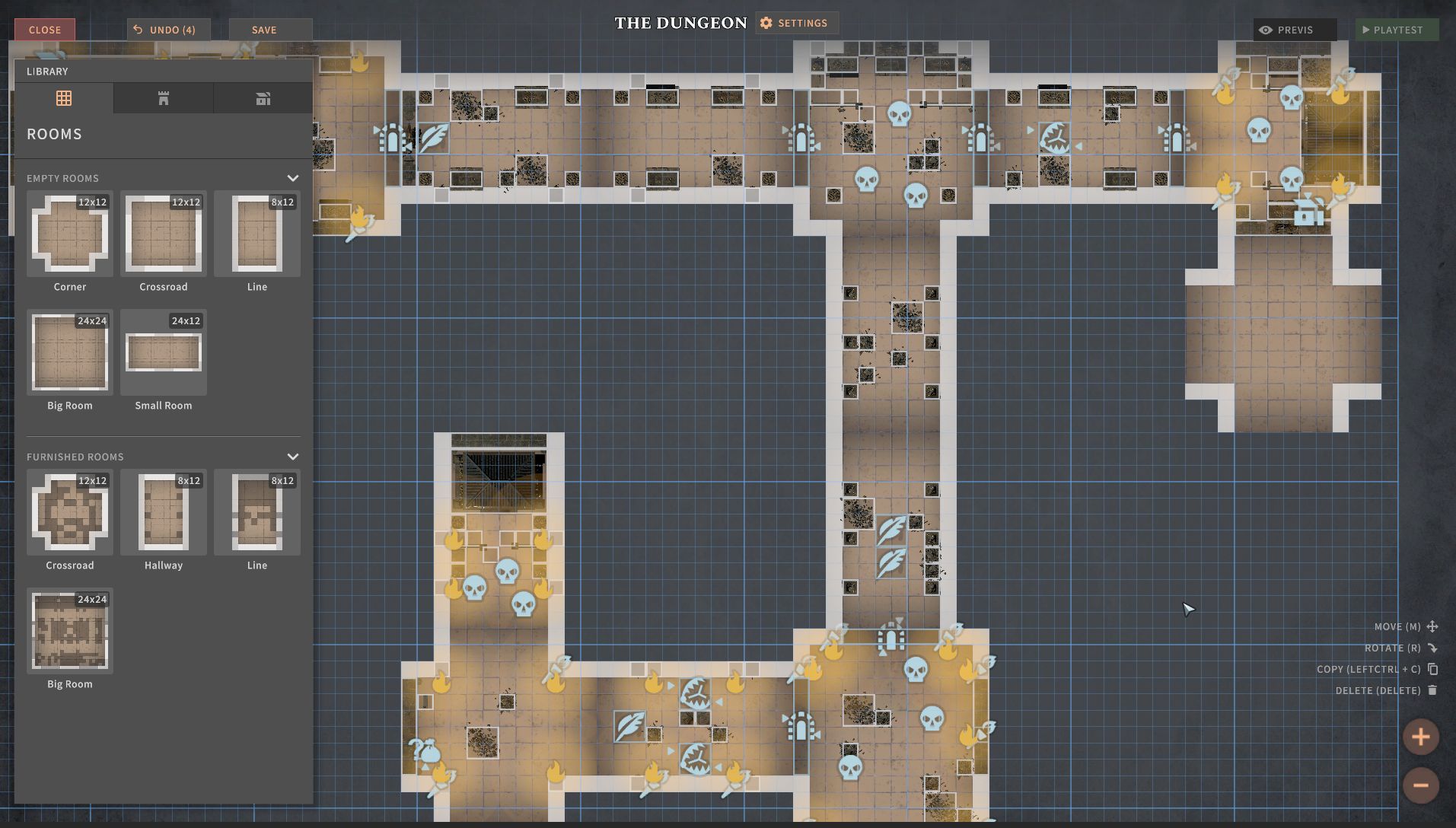
Although the main campaign frequently features levels and locations with sharp elevation changes, including cliffs, towers, and bridges, the Dungeon Maker is keeping things old-school with a 2D top-down visualization that resembles classic pen-and-paper graph paper dungeons. "I went for a flat interface for the Dungeon Maker because when you go 3D, you lose 50% of the audience, and I wanted the editor to be open to as many people as possible," says Girard. "That being said, we're looking at adding more verticality, like pits and platforms, or staircases to elevate entire rooms."
Accessibility has been an important mantra for the Dungeon Maker through its implementation. "We could've implemented full modding tools and SDK [software development kit], but it was so complex that few people would use it," says Zhang. "Keeping it simple has been a core pillar of the Dungeon Maker design. It's why the editor is in 2D. Instead of people spending two days to understand the tool and then maybe making a dungeon, the barrier to entry is low enough that everyone can have fun making dungeons right away."
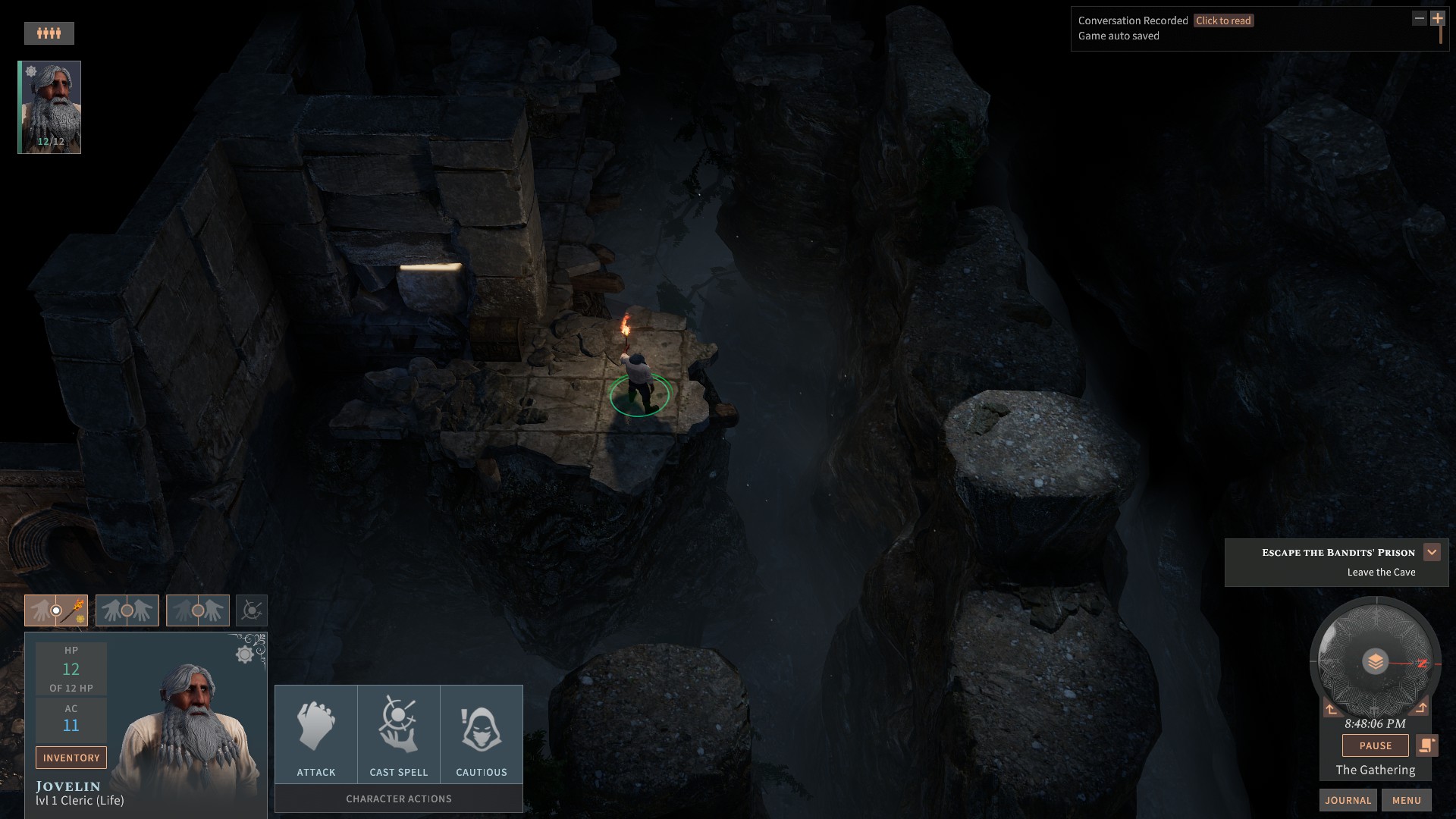
On the flip side, it's not currently possible to create monsters, items, or props outside what's in the game, though Solasta includes a robust bestiary and magic item database, and has several planned tilesets. But never count out the modders. "There are already several modders on Nexus Mods who have created new classes, subclasses, and ancestries for Solasta," says Zhang. "I don't doubt that players will be creating their own (unsupported) content for use in the Dungeon Maker."
One limitation in the Dungeon Maker is NPC interactions. In the current iteration, you can add pop-up descriptive text or dialogue to any object or NPC, but there's no way to create a fully interactive NPC with a dialogue tree, or shop with merchants or vendors. "If the community wants it we can look into it," says Girard. "We have a very complex dialogue and narrative system in our campaign. We'd like to avoid reprogramming everything again, and have to create a simple system for the Dungeon Maker."
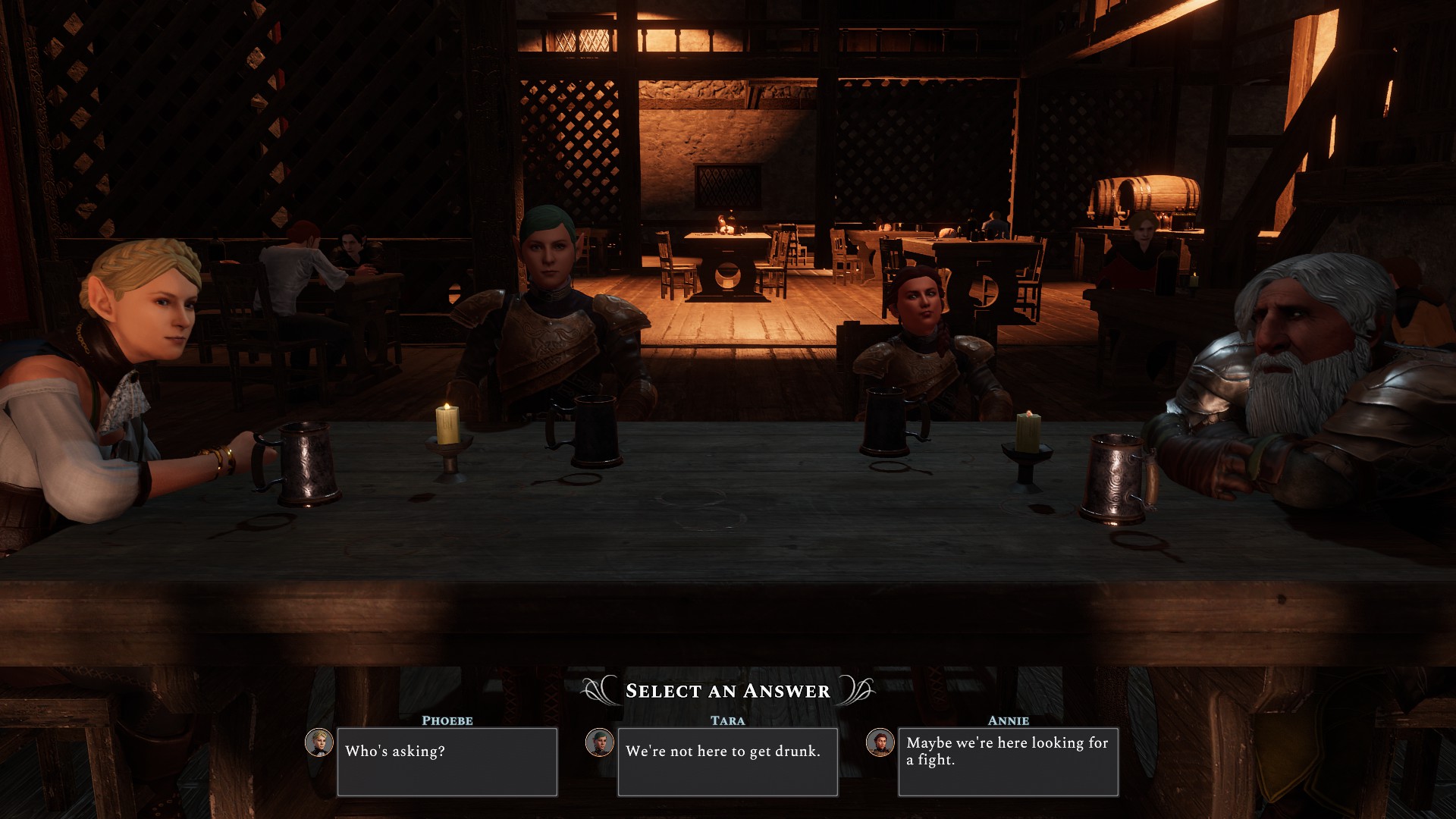
Solasta's Dungeon Maker will be fully integrated with Steam Workshop, a feature Neverwinter Nights fans would have killed for 20 years ago. "When you create a dungeon and export the file, you get a .JSON file," says Zhang. "It's super simple and light, and only uses content from the game, making it incredibly easy to share dungeons with other players."
Dungeon levels can be connected via special transition props (like portrals or stairs), with each dungeon featuring its own tileset. By connecting dungeon levels, players could journey from a forest to a cave, for example. Each dungeon is a separate file with no limit to the number of connected dungeons, potentially letting players construct mega-dungeons that rival the likes of Undermountain.
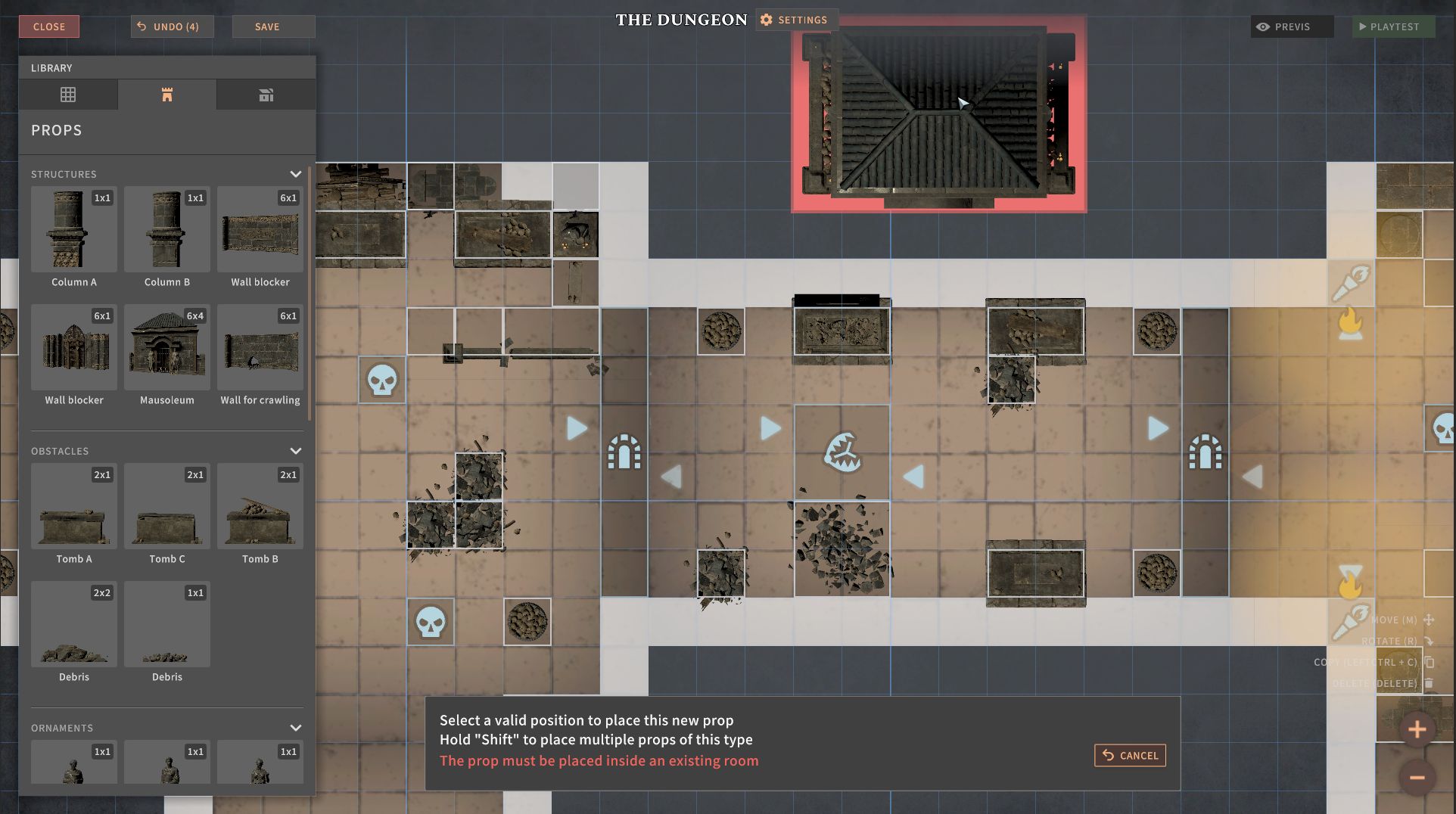
The biggest limitation may be character progression. In Neverwinter Nights, most characters were saved client-side and existed outside of downloaded modules, letting me take the same characters through various adventures. But in Solasta, you create a character for the campaign (or dungeon) and it only updates in that save game. The developers say they're planning to come up with a system for persistence, however, a way to keep characters going from dungeon to dungeon.
The future roadmap for the Dungeon Maker includes adding more content from the campaign, including additional tilesets, adding limited verticality, and even a roguelike random dungeon generator.
Although the potential of the Dungeon Maker has this old NWN-addict and tabletop D&D aficionado very excited, Tactical Adventures insists the main campaign is still the priority. When Solasta eventually launches as version 1.0, the Dungeon Maker will still be in beta. "It's great that when a user buys Solasta, they can play the campaign, then play user-made modules for 10, 20, or hundreds of hours," says Girard. "It's a huge addition to the game. We want to give this tool to the community as soon as possible, and start getting feedback."
The Spring Update adding the Dungeon Maker also added an increased level cap, new feats, and the addition of side quests—one for each background. Solasta: Crown of the Magister is scheduled for a 1.0 release later this year.

